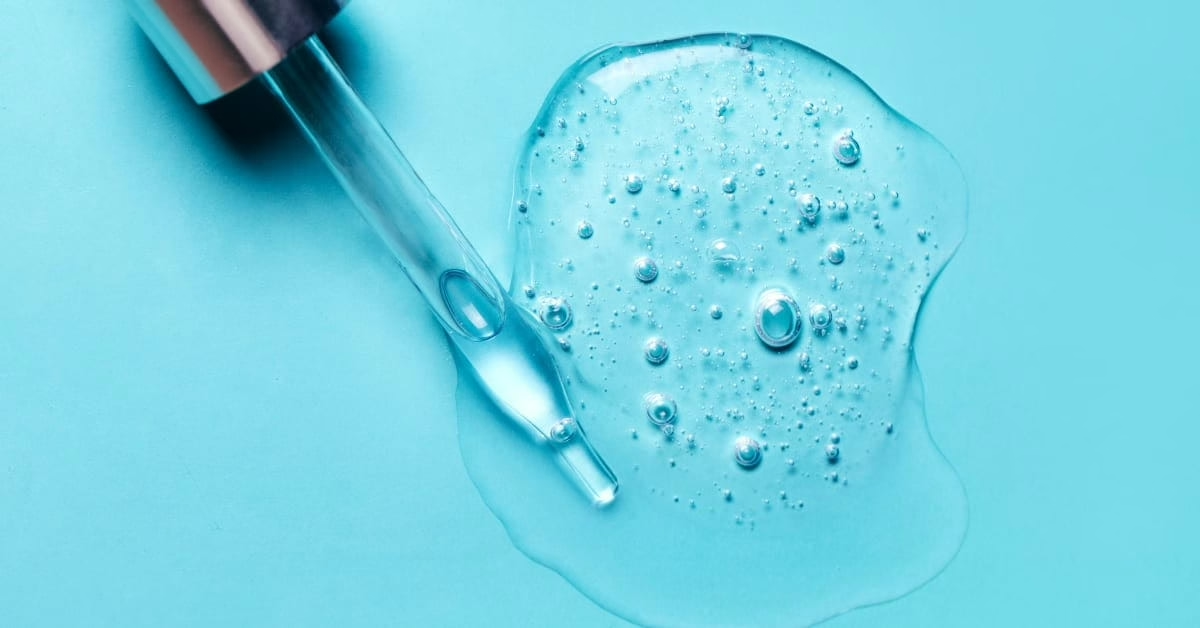Is Niacinamide Serum Suitable for Oily Skin?
Niacinamide, a form of vitamin B3 that is water soluble, acts as a multitasking antioxidant. It helps to soothe and hydrate the skin, reduce signs of aging, brighten dark spots and redness, and minimize inflammation, which can be beneficial for conditions like acne and rosacea. Niacinamide is generally well-tolerated and works harmoniously with most ingredients.
It pairs well with hyaluronic acid, ceramides, vitamin C, and zinc, and even complements stronger ingredients like retinols and alpha hydroxy acids (AHAs). This ingredient can be found in a variety of skincare products, such as cleansers, toners, moisturizers, and eye creams.
However, serums are often considered the most effective, thanks to their higher absorption rate. This article explores whether this serum is suitable for oily skin, whether it has the ability to reduce hyperpigmentation and balance the production of melanin.
Is Niacinamide Beneficial for Oily Skin?
Yes, niacinamide is a great choice for oily skin, particularly due to its ability to regulate sebum production. Excess sebum is often the culprit behind clogged pores, leading to breakouts—a common concern for people with oily skin. A 2006 study titled “Effect of Topical 2% Niacinamide on Sebum Production in Individuals with Oily Skin” provides evidence of niacinamide’s efficacy as a treatment for oily skin.
This study enrolled 100 participants, dividing them into two groups: one group used a moisturizer containing 2% niacinamide, while the other used a placebo moisturizer. After four weeks of application, participants who applied the niacinamide moisturizer reported a significant reduction in sebum excretion rates compared to the placebo group. This suggests that niacinamide can effectively help control oil production, although more studies are needed to fully understand its long-term impact.
Can Niacinamide Be Used for Oily, Acne-Prone Skin?
Niacinamide is also effective for acne-prone skin due to its anti-inflammatory properties. It helps reduce facial redness, ease acne, and calm skin inflammation. A study published in The International Journal of Dermatology demonstrated the benefits of a 4% niacinamide gel in treating mild to moderate acne.
This study involved 41 participants aged between 18 and 25, who applied the gel twice daily for eight weeks. The results showed a significant reduction in pustules, with only a few individuals reporting mild side effects such as itching and burning.
Topical Niacinamide Can Boost AMPs, Offering Long-Lasting Protection Against Bacteria
Antimicrobial peptides (AMPs) are proteins present in the human body that play a crucial role in defending the skin against bacteria, which can exacerbate acne through inflammation and infection. Niacinamide has been shown to enhance the activity of AMPs, thereby improving the skin’s ability to combat bacterial threats.
A study published in the Journal of Investigative Dermatology titled “The Effect of Topical Niacinamide on the Enhancement of Antimicrobial Peptides in Human Skin” explored this phenomenon. In the study, participants applied a topical niacinamide treatment, and results demonstrated that niacinamide significantly increased the levels of AMPs in the skin. This boost in AMP production provided longer-lasting protection against bacteria, reducing the risk of acne and other skin infections. The findings suggest that niacinamide not only supports overall skin health but also strengthens the skin’s natural defense mechanisms against microbial threats. Niacinamide’s ability to target multiple skin concerns, including oiliness and acne, makes it a valuable addition to skincare routines for those with oily or acne-prone skin.
Benefits of Niacinamide Serum for Oily Skin
- Regulates Oil Production: Helps control excess sebum, preventing clogged pores and reducing the risk of acne. This can significantly reduce the chances of skin becoming overly shiny or greasy throughout the day.
- Prevents Blemishes: Keeps oil levels in check, stopping breakouts before they occur and improving skin clarity over time. Regular use can result in a clearer complexion with fewer acne flare-ups.
- Unclogs Pores: Its antibacterial properties help clear out pores, reducing the likelihood of blemishes. This deep-cleansing action keeps skin looking smooth and refined.
- Reduces Inflammation: Minimizes swelling and redness caused by acne, leading to fewer breakouts and smoother skin texture. It helps soothe irritated skin and calm active blemishes for faster healing.
- Minimizes Pores: Reduces oil buildup, making pores appear smaller and giving the skin a more even tone. Over time, this can enhance the overall smoothness and appearance of the skin.
- Suitable for All Skin Types: Works well with a variety of skin types and can be easily integrated into any skincare routine. Its gentle nature ensures it can be used even on sensitive or combination skin.
- Compatible with Other Ingredients: Pairs effectively with potent actives like salicylic acid to enhance treatments for oily skin. This allows for a more comprehensive approach to addressing oiliness and acne without causing irritation.
Niacinamide: A Proven Solution for Skin Aging and Hyperpigmentation
Niacinamide is widely used in cosmeceutical products and can be found in various topical treatments, including creams, gels, and serums. It is primarily recognized for its effectiveness in slowing down skin aging and reducing hyperpigmentation.
One of niacinamide’s notable properties is its ability to lighten the skin. This was demonstrated in a clinical trial titled “Topical Niacinamide Reduces Sebum Production and Improves Hyperpigmentation in Asian Women: A Controlled Clinical Trial,” which involved 18 Japanese women with mild to moderate brown hyperpigmentation. Each participant was given two moisturizers—one containing 5% niacinamide and the other without. They applied one moisturizer on one side of the face and the other on the opposite side. After 4 to 8 weeks, the side treated with the niacinamide-containing moisturizer showed a significant reduction in hyperpigmentation compared to the other side.
Further more, niacinamide has been found to decrease melanin production, making it beneficial for treating melasma, as supported by a 2021 study. Niacinamide is one of the few ingredients that meets the rigorous “Kligman standards.” Dr. Albert Kligman emphasizes that to assess a skincare ingredient’s effectiveness, three critical questions should be considered:
1. Can this ingredient penetrate the stratum corneum and deliver sufficient concentrations to the deeper layer of the skin?
2. Does the ingredient have a biochemical mechanism of action in the target cell?
3. Are there any clinical studies that prove the efficacy of this ingredient?
According to research, niacinamide fulfills all these criteria.
What Are the Side Effects of Niacinamide for Oily Skin?
Niacinamide is generally safe for all skin types, including oily skin. However, during initial use, some individuals may experience mild itching or a slight burning sensation. Aside from these minor reactions, niacinamide does not typically cause adverse effects.
A 2011 clinical study titled “Topical Niacinamide in the Treatment of Melasma: A Randomized Controlled Trial” evaluated niacinamide’s efficacy and safety. The study noted that while niacinamide is effective for treating melasma, a few participants reported mild burning or pruritus (itching) as side effects.
To minimize the risk of side effects when using niacinamide, consider the following tips:
- Perform a patch test before applying niacinamide to your face.
- Start with lower concentrations to allow your skin to adjust.
- If using a niacinamide serum, follow up with a moisturizer suited to your skin type to maintain hydration and comfort.
How to Apply Niacinamide Serum
1. Cleanse Your Skin: Begin by washing your face with a gentle cleanser to remove any dirt, oil, or impurities.
2. Use a Toner: Apply a toner to balance your skin’s pH and prepare it for better absorption of the niacinamide serum.
3. Apply the Niacinamide Serum: Take a small amount of serum and gently spread it over your face and neck. Massage it into your skin using upward strokes until it is fully absorbed.
4. Moisturize: Follow up with a moisturizer to lock in hydration and enhance the serum’s effects.
5. Apply Sunscreen: Since niacinamide can increase sensitivity to the sun, finish your routine with sunscreen to protect your skin from UV damage.
When to Apply Niacinamide serum?
Niacinamide serum can be used both in the morning and evening. After cleansing and toning your face, apply it before your moisturizer. In the morning, follow it up with sunscreen, while at night, apply it before any other treatment products and your moisturizer.
When you incorporate this powerful ingredient into your daily skincare routine, you can achieve clear, healthy skin. Niacinamide works by regulating excess oil and sebum production, helping to clarify your skin. It also helps to minimize and refine enlarged pores, giving your face a smoother, more even texture.
To Sum Up
If you’re wondering whether niacinamide is good for oily skin, consider trying the Organix Mantra Niacinamide Serum. This pure-grade serum is designed to prevent breakouts, balance excess oil production, and soothe inflammation. It also improves uneven skin texture, making it a must-have for anyone looking to achieve a clearer complexion.
So, why wait? Grab your Organix Mantra Niacinamide Serum today and start your journey towards healthier, glowing skin!
FAQs
Is it safe to use niacinamide and vitamin C together?
Yes, you can use niacinamide and vitamin C together in your skincare routine. However, it’s recommended to apply vitamin C in the morning and niacinamide in the evening to reduce the chance of any interaction. Always begin with lower concentrations and perform a patch test to avoid potential irritation.
Can niacinamide be used alongside hyaluronic acid?
Yes, niacinamide and hyaluronic acid work perfectly together. Niacinamide helps control oil and calms the skin, while hyaluronic acid boosts hydration, making them an excellent combination.
Is it possible to combine niacinamide and vitamin C?
Yes, you can use niacinamide and vitamin C together, but it’s best to apply them at different times of the day or in separate products to minimize the risk of irritation.







